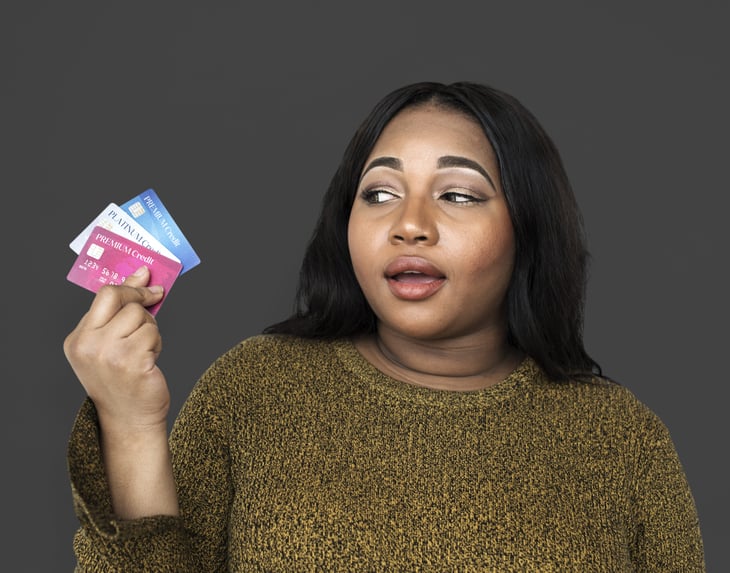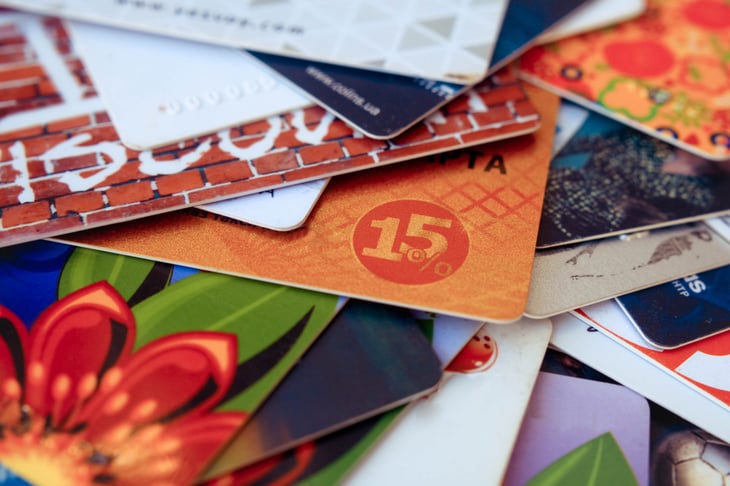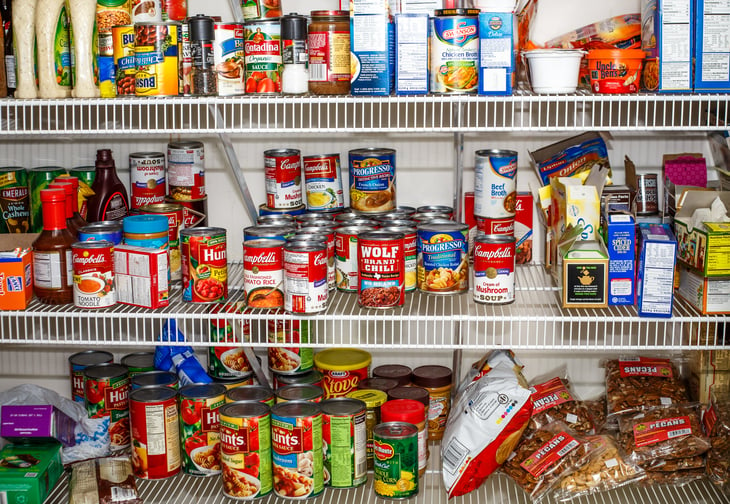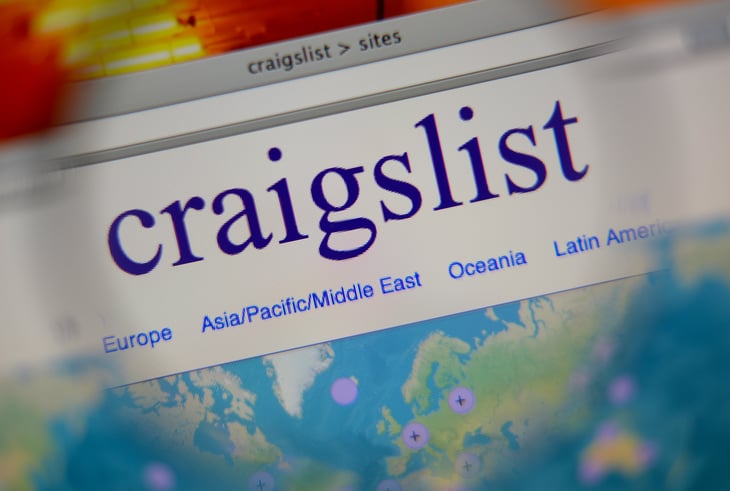
Editor's Note: This story originally appeared on Living on the Cheap.
Now that the holidays are over, many people are starting the New Year saddled with an overwhelming financial hangover of bills and debt. How do you deal with it?
While it might be easier to just make the minimum payments, that’s not a good long-term plan. If you don’t make a plan to reduce your debt, you’ll spend all of the new year with that hangover.
Who wants to live like that?
Here are some actions you can take that can cure your hangover and possibly help you prevent another one next year.
1. Determine what you owe

It may not be pleasant, but the first thing you need to do is determine exactly what you owe. Don’t wait for paper bills to arrive or for the month to close.
Log in to all your accounts now and determine what you owe on each credit card.
Once you know your total debt, you can apply the money-saving and money-earning ideas below to start paying it down.
2. Try to get your interest rates reduced

While you are online, determining what you owe, write down your interest rates. Contact each credit card company and ask them to reduce your rate.
If you have good credit, a company will not want you to transfer that debt to another bank. The worst the bank can say is no, so it’s worth a try.
If you decide to do a balance transfer to a zero- or low-interest-rate card, make sure you understand all the terms and conditions of the new card.
After a certain period, the new card will adjust to a higher rate, so understand what you’re getting yourself into before you do it.
3. Put your credit cards away in a safe place

Spend only cash for as long as it takes to get the debt paid off. If there’s a recurring charge, like your cellphone, that you pay via credit card, that’s OK.
You should pay for everything else with cash so you’re not tempted to spend more than you have in the bank.
4. Stop shopping

Yes, there are some good post-holiday deals. But if you’re already in debt, you can’t afford to shop the January sales, no matter how good they are.
5. Return gifts you bought for yourself and unwanted gifts

Most stores have a 30-day return policy, so if you’re within that time frame, return items you bought for yourself.
Return gifts you received that aren’t practical or that you don’t want for cash or for something you really need.
If it’s from a big-box store like Target, use the store credit to stock your pantry during future sales.
6. Sell unwanted gift cards

If you received unwanted gift cards, you can sell them through sites like CardCash.
Shop the various sites for the best deal for each card, and carefully research the site before you sell.
You won’t get face value but it’s still better than having an unused card lying around or using it to buy something you don’t need.
7. Use credit card points to pay your credit card bills

If you have credit card points that can be applied to your bill, use them to reduce your debt rather than to buy gift cards or future travel.
While using points for travel usually offers the highest value, it’s more important to get rid of your debt now.
8. Prepare to file your taxes as soon as possible

If you’re expecting a tax refund, file your taxes as soon as possible. Employers are required to send W-2 forms to employees by early February, so be prepared to file by then at the latest.
If you use Turbo Tax, a preliminary version is available online now for you to get started. Start getting all of your documents together, including charitable contribution receipts, deductible medical expenses, etc.
The IRS doesn’t guarantee when you’ll get your refund, but as soon as it arrives in your bank account, apply that cash to your debt.
9. Adjust your tax withholding

If you’re getting a refund, adjust your withholding, so you don’t have to wait to get your overpayment back. Get the money back on your future paychecks and apply the difference every pay period to your debt.
You can make more than one payment a month on your credit cards, so don’t let the money sit in your account if you think you might spend it.
10. Apply your pay increase to your debt

If you’re fortunate enough to be getting a pay increase this year, start applying the increase to your debt.
Make additional payments to your cards before the money disappears from your account.
11. Cash out your vacation time/paid time off

Some companies will allow you to “cash out” your vacation time or paid time off. If you have a lot of time accumulated and your company allows it, use the money to pay down debt.
12. Work overtime, get a second job or do temporary work

If your job offers overtime pay, volunteer to work as many extra hours as it will give you. Since you shouldn’t be out spending money anyway, this is a good use of your time.
If you don’t have access to overtime, look for a part-time job.
If you have a lot of vacation time banked, contact a temp agency and see if you can get an assignment, then take vacation time off from your regular job and earn money temping.
If no jobs are available, consider dog walking or babysitting. Get creative and apply your skills to earn cash by doing things like tutoring or becoming the neighborhood handyperson.
13. Don’t take an expensive vacation this year

If you take an expensive vacation every year, choose to take a “staycation” this year and don’t increase your debt. Visit your local Living on the Cheap website for frugal ideas for a staycation.
14. Eat from your pantry and freezer for 2 weeks

One way to save some money quickly is to reduce your grocery bill for two weeks or more. Spend this time preparing meals from your pantry and freezer and only buy essentials like milk, eggs and produce.
Not only will you save money, you’ll get a handle on what you have in stock, so you can take an inventory and shop more wisely in the future.
Investigate freezer cooking, and see how much simpler — and cheaper — it will make your meal planning.
15. Try a ‘no-spend month’ or two

Vow to spend a whole month eating from your food stockpiles but extend the no spending from groceries to everything else. Don’t go out to eat or spend money on other entertainment. Don’t buy any clothes, cups of coffee or anything else.
The exceptions would be medical and emergencies. Not only will you save money, but you’ll become more aware of where you spend your money and can get your overspending under control.
Take a walk, read books you have lying around, or go to the library. After you do it once and see how much you’ve saved, plan to do it again in six months or whenever it works for you and your family.
16. Look for things you can sell

Sell unused watches, jewelry and clothes etc. on eBay or to resale shops. Sell books to Amazon or your local used bookstore. List excess furniture on Craigslist or Facebook Marketplace. Sell CDs to a used CD store.
Not only will you raise some cash, but you’ll also declutter your home. If you live somewhere warm, have a garage sale or two.
17. Go through your bills and make sure you’re getting the best deal

Review your gas, electric, landline, internet, cellphone, cable, auto insurance and homeowners insurance bills. Determine whether you’re getting the best deal for each.
Many parts of the country offer alternative sources for utility services. Some landline providers offer a bare-bones option. Check to see whether you’re getting the current best deal for your home internet.
Determine whether you’re using all your cellphone minutes, text and data. If you’re not, switch to a cheaper plan.
Go online and look for the cheapest plan currently available from your cable provider. Call and ask to switch to that plan. If the company won’t do it, ask to speak to the retention department. Or just cut the cable cord altogether.
Combine your homeowners and auto insurance policies under the same company to get a discount. Consider increasing your deductibles in order to decrease your premium payments.
18. Cancel all unused services and memberships

Cancel anything you don’t need or use regardless of how small it is. If you don’t go to the gym, be realistic and cancel your membership.
Determine whether you really went to the warehouse club enough to get value from the membership. Cancel magazine and newspaper subscriptions that end up unread and in the recycling bin.
If you’re a member of a motor club, cancel towing on your car insurance. Or cancel the auto club membership. If you have Netflix, Hulu and cable, consider canceling all but one.
19. Cancel or downgrade unused credit cards with an annual fee

If you have a credit card with an annual fee that you don’t use, consider canceling it or downgrading it to a no-fee credit card from the same bank.
Be aware that canceling a card may affect your credit score, so research your options before acting.
20. Resolve to get your finances in order

If you’re serious about tackling your debt, now is the time to create a budget so you can prevent this from happening ever again.
Implement permanent changes to your spending rather than just trying to get out from under this year’s hangover.
Resolve to improve the quality of your life by changing your lifestyle from consumption-based to experience-based.
21. Try to see the positive in your situation

This year’s hangover may be the last straw for you. If you’re tired of going through this every year, use this as a catalyst for permanent change.
It can only make your life better in the long run. There are more important things in life than having a lot of stuff.






Add a Comment
Our Policy: We welcome relevant and respectful comments in order to foster healthy and informative discussions. All other comments may be removed. Comments with links are automatically held for moderation.